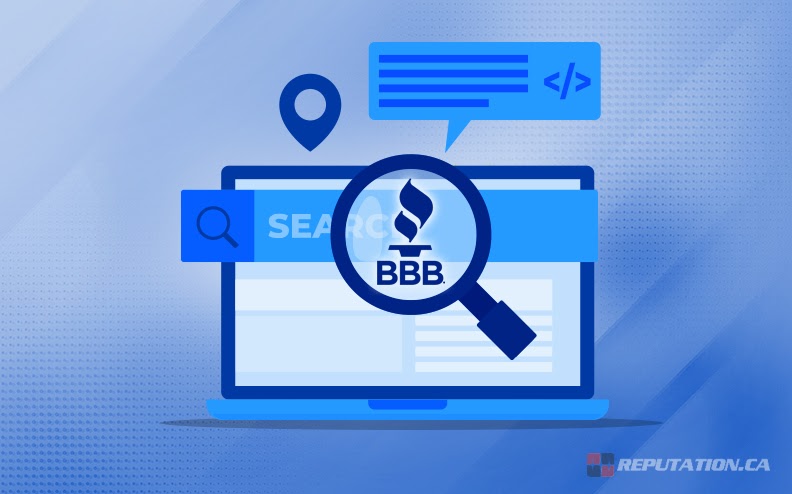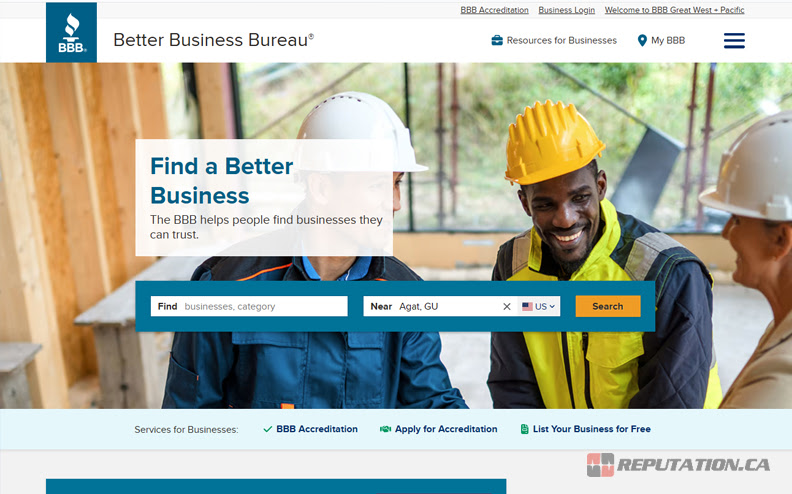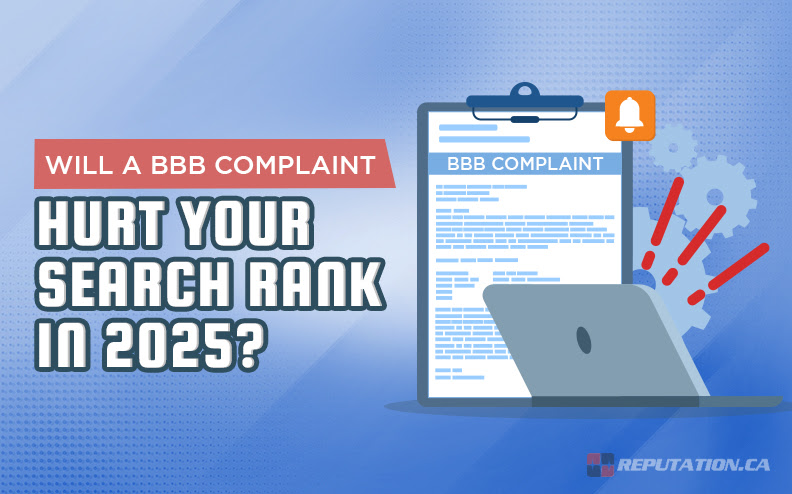A viral BBB complaint can make any business owner pretty worried about their search rankings. We’ve all searched for our own business name and had that terrible feeling when negative results showed up first.
Here’s what most business owners don’t know – Google doesn’t actually use BBB ratings or complaints as direct factors to rank your website. The algorithm doesn’t go and check your BBB grade before it decides where to put your site in search results. Most people think it does. But that’s not how it works.
What happens is that BBB pages rank really high when people search for your business name. I’ll show you why this happens and how these complaints can indirectly hurt your search results.
Real Factors and the BBB Myth
Google has made it pretty obvious that BBB complaints and ratings don’t have any direct effect on your search rankings. Their representatives have said this over and over through the years. Danny Sullivan and John Mueller have both talked about this misconception on social media.
The confusion starts when people mix up real ranking factors with trust signs. Your site’s loading speed is something that actually matters to Google’s algorithm. The quality of your content and how your site works on mobile matter, too. BBB ratings just don’t make that list – no matter what some SEO forums try to tell you.
Here’s what actually matters for search rankings versus what people think matters. The real factors that affect rankings include how fast your pages load, how relevant your content is, and signals about user experience. At the same time, some common myths include BBB accreditation, customer reviews on other websites, and trust badges. Once you understand these differences, you can skip past the elements that won’t help with rankings.

Google’s algorithm looks at technical performance and content quality more than anything else. Business owners who go after BBB ratings for SEO reasons miss opportunities to work on factors that actually matter. You’ll see much better results focusing on proven ranking signals instead of reputation sites.
The SEO rumor mill likes to keep these myths going, though. There’s always someone out there ready to sell you a service based on old or false information. The truth is way more boring than the conspiracy theories – which is why these myths keep going.
BBB does have one indirect effect worth mentioning. Their website has high domain authority, which means BBB business pages can show up near the top when people search for your company name. If you have any unresolved complaints sitting there, those pages might show up in your brand searches and cause reputation problems.
This situation puts negative content about your business right up front when possible customers look you up. Bad BBB profiles can hurt how people see your brand, even though they don’t touch your search rankings. So, taking care of your BBB presence is actually about handling your reputation, not improving your SEO. This effect on your reputation is different from the factors that affect your rankings. Google isn’t looking at your BBB rating to decide where to put your website in search results. But customers might see negative BBB content when they search for your business name – which affects whether they choose to buy from you, not where you rank.
When BBB Pages Beat Your Website
What does this mean for your business? When someone searches for your company name, your BBB profile page will sometimes show up higher than your own website. This usually happens with national moving businesses and local service providers, and you’ll see this pattern across different industries. Their BBB listings show up at the top, while their actual business websites appear lower in the results.
Say you’re a customer searching for a business. You type in the business name, looking for their website, and instead, you see their BBB page with star ratings and complaint info. Before they find the homepage, you see the BBB favicon and review snippets. If there’s a recent complaint or low rating, that ends up being your first impression of the company.

Your potential customers already form opinions about your business before reaching your website. They make these quick decisions based on BBB content that you didn’t write. This affects customers when negative reviews or complaints are the first items they see in search results.
This creates a weird situation where the BBB pretty much controls part of your online reputation. Because their website is so well-established, any content about your business on their site shows up first in Google since search engines usually prioritize these big sites. Your BBB profile ends up being like a second homepage for your business that you don’t have full control over.
You end up having to compete with a third-party website just to have your own brand show up in searches. Because search engines trust the BBB so much, they have a built-in edge when ranking for your business name. All your marketing work gets buried by the content they control.
When people search for phrases like “your business name + reviews” or search for businesses in their area, BBB profiles show up frequently in the results. This gives them even more ways to shape what potential customers think about your business before these customers ever see your actual website.
How Bad Reviews Damage Your Business
Google says BBB complaints don’t directly hurt your search rankings. But that doesn’t mean you’re safe. The real damage comes through other ways that Google does track and measure.
Let’s say you search for a business late at night. You’re ready to hire them or buy what they’re selling. Then, you run into their BBB page that shows three unresolved complaints about poor customer service. Seeing these complaints right then makes everything worse. Nothing makes people abandon their online shopping cart faster than when they see a “Pattern of Complaint” warning on the Better Business Bureau site. Your possible customers will click away from your website without giving you a real chance to show them what you can do.
These warnings hit customers right when they’re about to make their final choice. They’ve already spent time thinking about your business and what you have to sell. Now they’re questioning if you’ll actually do what you promise. Their brain goes from wanting to buy something to wanting to protect themselves, and this happens in just seconds. That’s how reputation ripple effects start spreading. BBB pages show up high in search results because the site has strong domain authority. When people search for reviews about your company, your negative BBB complaints might appear higher than your own website. Domain authority wins over fresh content every single time.

Here’s where your search rankings start taking a hit. After people read those complaints and then visit your site, they don’t stay there very long. They leave your pages immediately because they’ve already lost trust in what your business does. Google sees when visitors leave your site fast. The search engine keeps track of how long people stay on your pages and if they actually use your content. If more people start leaving your site quickly because they don’t trust you anymore, Google might think your site isn’t useful or relevant. Those algorithms can’t tell the difference between poor content and damaged trust.
A 2023 HomeServiceHub study showed an obvious link between what people say in reviews and how many visitors actually become customers. Businesses that had negative online reviews saw visitors spend 40% less time on their websites. Those numbers represent real money walking out your door. Every time someone spends less time on your site, it means fewer phone calls, fewer people filling out your contact forms, and fewer sales. Your marketing budget has to work harder just to bring in visitors who end up leaving faster than they ever have before.
How to Handle Complaints the Right Way
When a complaint shows up on your BBB profile, you have exactly 14 days to respond before the BBB starts sending you reminders. The clock starts ticking right away. Most complaints get closed within 30 days unless you’re going back and forth with the customer and keeping records of it. Your response time really matters now. The BBB has started to care much more about how fast businesses respond to customers when calculating ratings.
How fast you respond shapes where your rating goes. The BBB now looks at how you communicate compared to how your business performs as a whole. The way you handle complaints directly changes how future customers see your business. Here’s where it gets interesting, though. The BBB has also started looking much more closely at whether complaints are legitimate or not. False complaints and attacks from competitors get watched more closely than before. Keeping detailed records is your best protection here. You can actually get fake complaints removed if you keep the right paperwork to prove your case.

Here’s a story about this regional HVAC company that went from an F rating to an A rating by changing how they responded to complaints. They got back to each complaint within 24 hours and suggested specific ways to fix problems. Then, they followed up with paperwork showing every step they took. When you respond the same way every time, you get results you can measure. This company turned its reputation around through strong communication. Their story shows that getting back to people and following through matters more than never getting complaints at all.
What matters most is to stay away from defensive language or those cookie-cutter apologies that sound like a robot wrote them. You also need to be careful not to accidentally share private information when you’re trying to tell your side of the story. Each complaint gives you a chance to turn an unhappy customer into someone who recommends you if you handle it well. When you get defensive, you lose the chance to fix the situation. The tone you use affects the person complaining and other customers who read your profile later. Every time you respond, people can see how you handle unhappy customers when times get tough.
Having resolved complaints removed from your profile plays a much bigger role in taking care of your reputation now.
Spread Your Reviews Across Multiple Sites
You might deal with BBB complaints well. But that still leaves you with gaps everywhere else. Your customers don’t just check one review site before they choose to buy from you. These days, shoppers look at multiple sites before they buy anything. They bounce between Google Business Profile and Trustpilot and industry forums before they make up their minds.
You should really spread your reputation across multiple sites instead of relying on just one. When you have positive reviews on Google, Facebook, and Yelp, a single BBB complaint just doesn’t matter as much anymore. It’s just basic math. One negative review mixed in with dozens of positive ones doesn’t hurt nearly as much.
When you spread out your reviews, it protects your business from reputation damage. One random complaint won’t hurt your sales when customers see positive reviews everywhere else. Your competitors who don’t do this leave themselves open to problems that can really hurt their sales overnight.

Here’s where most business owners go wrong, though. They wait for reviews to happen naturally instead of asking for them. You need to ask your happy customers to leave reviews without sounding like a robot. Those generic template emails backfire anyway. A sincere thank-you email does better than a discount code nine times out of ten.
Google Business Profile should be your first priority since those reviews show up right in search results. Trustpilot is great for e-commerce businesses, while industry-focused directories matter more for service businesses. Google reviews show up in local searches right when customers are choosing who to call. Professional buyers check industry directories before they choose who to work with. That’s why you want to put your time into the places where your customers actually look.
Here’s what matters most – stay away from review gating. You can’t cherry-pick which customers get review requests based on how happy you think they are. That’s against most sites’ policies, and it can backfire when you guess wrong about customer satisfaction. Customer feedback will catch you off guard more times than not.
Monitor and Manage Your Reputation
The reality becomes obvious when you take a step back and look at the bigger picture of how search engines work now. While BBB complaints by themselves won’t directly hurt your rankings, they’re still part of a much bigger conversation about trust and credibility that happens online every single day. These algorithms change constantly. Search engines have become very skilled at figuring out how people feel about your business, and they usually reward businesses that earn real trust from customers across different places rather than ones that just rely on any single badge or certification.
Trust matters because it shows what real customers actually think about you across different channels. A single BBB complaint won’t usually change your search rankings when you’ve built up credibility in other places. Search engines are looking at the bigger pattern of how customers interact with your business online.

So, what should you do this week to make your online credibility stronger? Maybe it’s time to respond to that complaint you’ve been putting off, or maybe you need to create a better system to get positive reviews from happy customers. The beauty of understanding how these systems work is that you can put your energy into building real relationships with your customers instead of worrying about trying to game certain sites. Real relationships with customers lead to positive results online. Happy customers leave reviews, tell their friends about you, and come back to buy from you again.
Your online reputation is about making real connections and delivering consistent quality every time someone deals with your business. Trust Canada’s leading experts who manage reviews, social media, public relations, and crisis response. If you’re dealing with cancel culture or want to build a stronger reputation online, we’re here to help. Contact us at Reputation.ca now for expert help that’s designed just for your needs!







